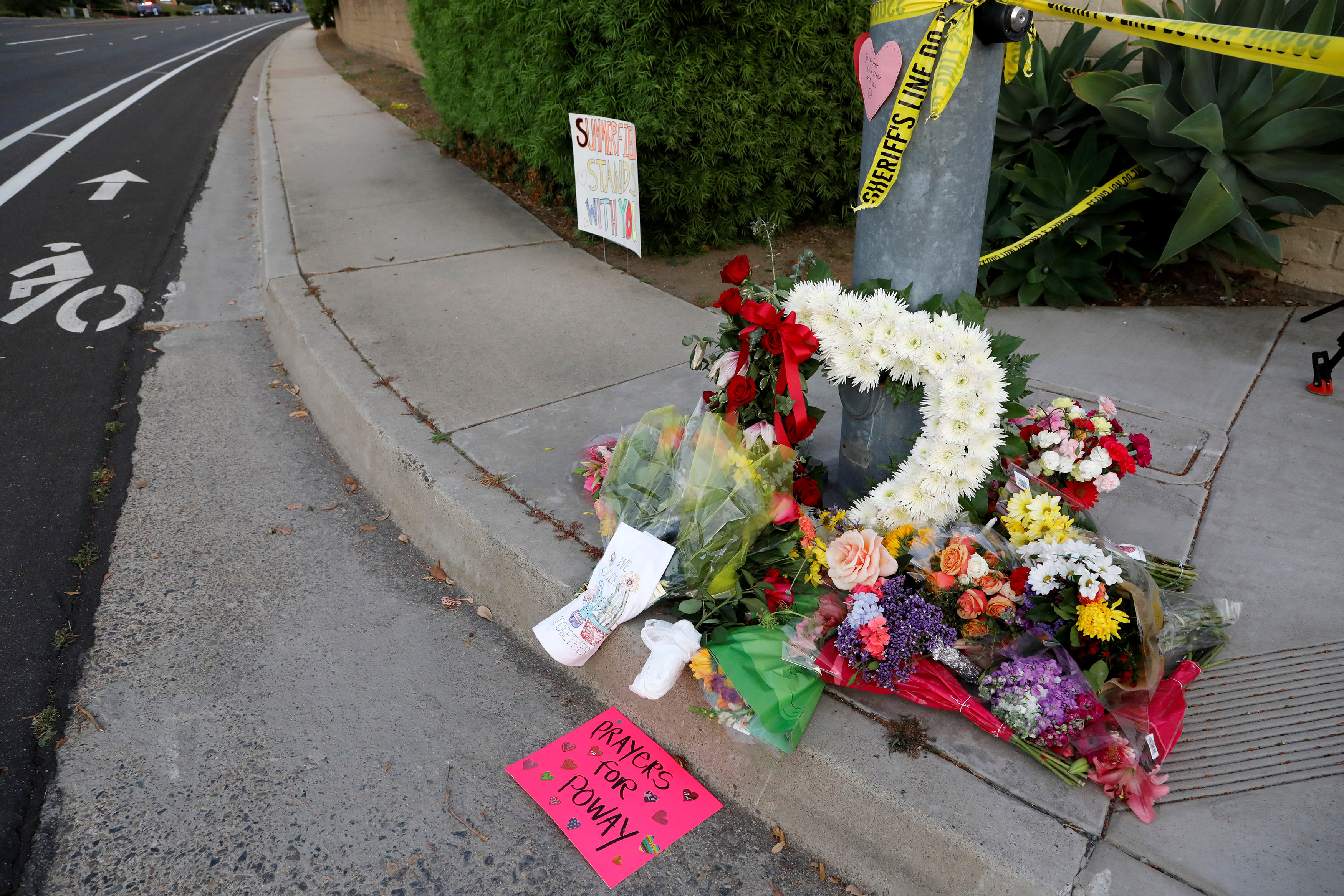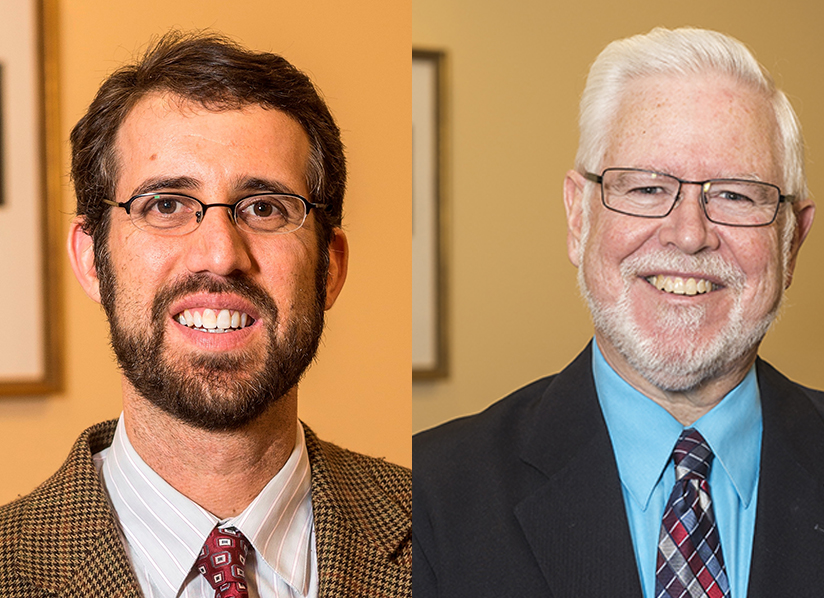
A makeshift memorial is displayed April 27, 2019, near a shooting incident at the Congregation Chabad synagogue in Poway, Calif., near San Diego. In response to the shooting, Cardinal Daniel N. DiNardo of Galveston-Houston and president of the U.S. Conference of Catholic Bishops, said in an April 28 statement: “Our country should be better than this; our world should be beyond such acts of hatred and anti-Semitism.” (CNS photo/John Gastaldo, Reuters)
Catholics should lead the response to “displays of negativity and violence” such as the recent synagogue shooting in California, according to one local expert.
Professor Philip Cunningham of St. Joseph’s University in Philadelphia said that “Christians, and Catholics in particular, have a responsibility to communities” who have historically been targeted by discriminatory rhetoric and actions.
“We’ve got to be really vigilant about this,” he said.
[hotblock]
Cunningham, a Catholic, is director of the school’s Institute for Jewish-Catholic Relations (IJCR). Founded in 1967, the IJCR is the oldest university center of its kind in the U.S. created in response to the Second Vatican Council’s call for increased interfaith dialogue.
The institute, which hosted an April 7 interfaith Passover seder, has organized an interfaith service of solidarity that will take place on Tuesday, April 30 at 5 p.m. in front of the Chapel of St. Joseph on the St. Joseph’s University campus.
(Read Archbishop Charles Chaput’s statement on the synagogue shooting in Poway, Calif.)
In its announcement, the IJCR noted that the event would mark “the fourth time during this academic year that we have mourned the loss of life after a hateful assault on a religious community.”
The service will honor the victims of the southern California shooting, as well as “those slain while praying in churches in Sri Lanka, mosques in New Zealand and [the Tree of Life] synagogue in Pittsburgh.”
An April 27 attack on Chabad of Poway synagogue, located near San Diego, left one woman dead and three injured. The suspect, 19-year-old John Earnest, was arrested shortly after opening fire on worshipers who had gathered to celebrate the last day of Passover.
The shooting took place exactly six months after a gunman killed 11 people at the Tree of Life synagogue in Pittsburgh, the deadliest anti-Semitic attack in U.S. history.
(Related: Catholic bishops condemn Poway synagogue shooting.)
IJCR co-director Adam Gregerman, professor of Jewish studies at St. Joseph’s University, said there is “a painful solidarity of suffering” with “multiple religious communities” whose lives have recently been placed at risk in the practice of their respective faiths.

St. Joseph’s University professors Adam Gregerman (left) and Philip Cunningham, who direct that school’s Institute for Jewish-Catholic Relations, note that politically polarized climates endanger religious and other minorities. (Photos courtesy of St. Joseph’s University.)
“It’s been a regular stream of religious violence that we have not known in this country certainly in my lifetime,” said Gregerman.
Both Cunningham and Gregerman noted that polarized political climates work to endanger minorities, whether religious, ethnic or racial.
“There’s an undeniable pattern here” of such groups being targeted, said Cunningham, while Gregerman said that religious violence, often “sadly connected with larger political trends … reminds us of the vulnerability of minorities” in any given society.
Attackers have increasingly taken to social media to post their harmful intentions and to “state at length their reasons” for singling out their victims, Gregerman said.
Through this “pattern of laying out one’s views,” such posts “make it possible to assess the influences and the motivations more clearly than with other random acts of violence,” he added.
According to news reports, an anti-Semitic letter was posted on 8chan, a far-right message board, by an individual with the user name “JohnTEarnest” a few hours before the Poway shooting.
Cunningham observed that disturbed individuals can be radicalized, both online and offline, by “rational people who deliberately try to tap into” potential attackers to “fan the flames of grievance.”
PREVIOUS: Welding program to train young tradesmen at Fr. Judge HS
NEXT: Gianna Center of Philadelphia opens new facility in region


Share this story